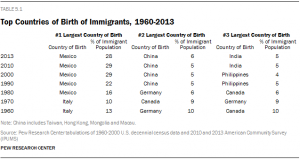What is an American?
In the chapter we read this week for class, Greenberg and Page analyze the United States by its population. They look at the nation from a Macro lens encouraging us to step back and look at how we have changed over our the course of our history.
We often judge a nation by its political leaders, its institutions, its history, and perhaps its athletes and entertainers, but these individuals and entities are only extensions of what matters most. The everyday citizens or “Average Joes” of a country are the core of the nation and the foundation of everything else that we see. Despite the knowledge that populations are made up of very different individuals, it is incredibly common for us to make sweeping generalizations about a populace. Greenberg and Page give us the statistics and facts on the United States’ population that should help us define “What is an average American”, but the sweeping differences between us make it almost impossible.


There is no denying that the United States of America is a melting pot and has turned into an increasingly diverse nation on every level. Seen as the land of opportunity across the world, the US attracts immigrants from every country and every walk of life and has done so for hundreds of years. As our population changes, so does our country. Not all people want change, and at every point in our young country’s history, immigration has been met with resentment. Even recently, men and women have furiously fought to keep others out of this country and to keep America for who they believed to be Americans, but the answer to what an American is varies depending on who you ask. Some may imagine a white Christian family man living in a comfortable midwestern suburb with a normal office job as your “average American”, but this man does not represent all the other people we would consider to be Americans. This narrative forgets the single mothers working two jobs just to put food on the table, or the Hispanic high school student working late so he can be the first member of his family to go to college, or the black businessman working on the 84th floor of a New York City skyscraper dealing with million dollar hedge funds. I think that all of these people could be considered average Americans, despite the numerous and obvious differences between them.
Similarities in gender, skin color, religious views, economic status, shape and size, or where we call home do not help us define an “American” because we are too different as individuals. Greenberg and Page mention ideas like individualism and populism as common American beliefs but even on that we cannot fully agree. We are split politically and ideologically on everything. Even things we think we can agree on are not supported by 100% of the population (As mentioned in this NPR article). This chapter highlights the differences between American people and yet I still believe there is something we all have in common that makes us all Americans. I ask you to really consider the following questions. What do you think an average American is like? What makes us all American? Do you consider yourself to be an average American? There might not be a correct answer to any of these questions. Maybe the only thing that makes us all American is our citizenship, but I like to think there is something deeper than just the title of “an American” that I have in common with every other citizen of this country.
http://www.pewhispanic.org/2015/09/28/chapter-5-u-s-foreign-born-population-trends/
http://ww1.bryont.net/racial-ethnic-makeup-united-states/